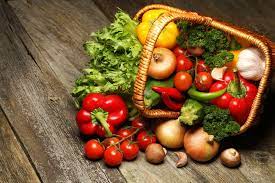Dr Olufemi AyanfeOluwa, a lecturer at the Federal College of Agriculture, Ibadan says no agricultural produce should be termed organic unless certified by appropriate authorities.
AyanfeOluwa made the declaration on Saturday in Abuja at an online presentation on Organic Agriculture Standard and Certification organised by Journalists Go Organic Movement.
He said it was not sufficient to make personal claim of producing organic foods since there should official confirmation by appropriate authorities.
“If it is not certified, it may not be organic, therefore, organic agriculture business is an organised system based on integrity and quality assurance.
“Certification means an audit process to evaluate compliance to an established standard.
“Organic standards are sets of definitions, requirements, recommendations and restrictions regarding the practice and materials that can be used within certified organic production and processing systems.
“These documented standards define the requirements that a producer/processor must meet before the certifying organisation will certify the enterprise as ‘organic’,’’ he said.
AyanfeOluwa noted that Organic Agriculture Standard and Certification are important tools for Organic Agriculture business.
“We also have a standard in Nigeria – “Organic Agriculture Standard in Nigeria’’ and anybody claiming to be practicing organic agriculture without following any known standard is rather joking,’’ he stressed.
He enumerated the types of certification programmes available to farmers who might be interested in having their produce certified.
“We have individual or self-claim called First Party Certification. Self-claim means that the farm has not gone through audit process (certification) and it is only the farmer that could claim what he/she is doing is organic.
“Thus, only close persons who could trust such a person would buy into his produce/products.
“Participatory Guarantee Systems (PGS) which is the second party are quality assurance initiatives using their own written standards, often based on The International Federation of Organic Agriculture Movement’s Basic Standards.
“PGS are specific to individual communities, geographic areas, politics and their markets and the methods of verification that are used vary; credibility is ensured through the participation of all stakeholders.
“Thus, it makes it easier for organic farmers with small holdings which characterised agriculture in Africa to market their produce locally as “organic’’, having access certification through PGS.
“It should be noted that PGS-certified products could only be sold within your country or region, but cannot be exported as organic; this is the limitation of PGS,’’ he explained.
He said that Third Party Certification is in contrast to first party (self- certification) and second party certification carried out by a body closely related to the supply chain.
“Accreditation is either provided by private or public sector often by or with the consent of public authorities; requirements for accreditation are laid down in ISO 65 which is endorsed by the European Union as EN 45011.
“To export produce or products to any country, you must produce and be certified based on the standards of the receiving country.
“If you are targeting U.S. market for instance, you must produce and be certified based on National Organic Program of the United States of America.
“Such certification could only be handled by an independent accredited body which is a third party between the producer and the consumers in the targeted country.
“Third party certification could be very expensive and complex, and therefore makes it unaffordable for a small scale farmer.
“You require a large volume of production to be able to offset the cost of Third Party certification. It could be as costly as 5,000 pounds (about N3 million) or more, AyanfeOluwa said.





